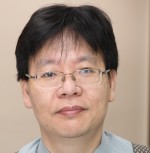Yi-Bing Lin, member, board of directors, Chungwha Telecom & SVP, NCTU, Taiwan, is speaking on the subject of Taiwan’s mobile broadband on Day One of the LTE Asia conference, taking place on the 18th-19th September 2013 at the Suntec, Singapore. Ahead of the show we speak to him about the challenges of deploying LTE in Taiwan.
September 18, 2013

Yi-Bing Lin, member, board of directors, Chungwha Telecom & SVP, NCTU, Taiwan, is speaking on the subject of Taiwan’s mobile broadband on Day One of the LTE Asia conference, taking place on the 18th-19th September 2013 at the Suntec, Singapore. Ahead of the show we speak to him about the challenges of deploying LTE in Taiwan.
What have been the main developments and major milestones for you over the last 12 months with regards to LTE?
As the leading telecommunications operator in Taiwan, we are well prepared to develop LTE commercial services once the license is awarded. Over the last 12 months, we have aggressively conducted LTE network and service planning. The Taiwan regulator announced that it will issue new mobile broadband licenses services by end of 2013 with the auction process starting on 3 September 2013. We are confident of getting new licenses to deploy LTE commercial services.
How much of a challenge do you feel monetising LTE will be?
Pricing and base station installations are the key challenges for LTE development in Taiwan. Users in Taiwan used to pay a flat-rate tariff for accessing Internet services via 3G. They enjoy mobile broadband to access Internet applications on a daily basis, but on the other hand, protest at base station installation frequently. Resolving these two issues will be one of the key challenges for monetising LTE.
Tell me about the fresh challenges that LTE brings with regard to backhaul?
LTE base station deployment replies on high-speed fixed broadband as backhaul. In Taiwan, the government has mandated 100 per cent household penetration of 100Mbps in metropolitan areas by the end of 2013. Currently ranking fifth in the world for FTTx deployments, Taiwan has strong fixed broadband support for LTE development.
The LTE Asia conference is taking place on the 18th-19th September 2013 at the Suntec, Singapore. Click here to download a brochure for the event.
Can initiatives such as RCS Joyn enable carriers to overcome the OTT threat?
The initiative of RCS Joyn service has advantages over the OTT app in terms of reliability, security and trust. We foresee that users will enjoy using this service. Several operators have launched commercial RCS Joyn services recently and we are closely investigating their achievements to see how we can address this issue in Taiwan.
Are you eager to implement VoLTE?
Considered the voice quality, we will provide CSBF first and then VoLTE, once nationwide LTE coverage is established.
Where is LTE Advanced on your roadmap? Will you implementing it all at once or gradually introducing key features?
LTE-A is a natural evolution of LTE and is certainly on our roadmap. We plan to upgrade to LTE-A technology once its ecosystem is mature enough; for example, when the smartphones are popular.
There are still some concerns over the performance of the latest handsets with regard to LTE in terms of battery life and call quality. What’s your view?
Battery is always a major concern in accessing mobile broadband. We continue to develop and adopt the green technology of both mobile network and smart devices to address this issue. For example, we have adopted smarter radio resource management techniques and requested handset manufactures to conserve the power consumption of smart devices.
Why is attending the LTE Asia conference such an important date in your diary?
Considering the opportunities and challenges on monetising LTE services, the industry collective of operators, app developers and vendors need to learn from each other to establish the LTE ecosystem and increase the potential for collaboration opportunities. LTE Asia is the best platform to serve this purpose.
Read more about:
DiscussionAbout the Author(s)
You May Also Like








.png?width=300&auto=webp&quality=80&disable=upscale)


_1.jpg?width=300&auto=webp&quality=80&disable=upscale)


.png?width=800&auto=webp&quality=80&disable=upscale)